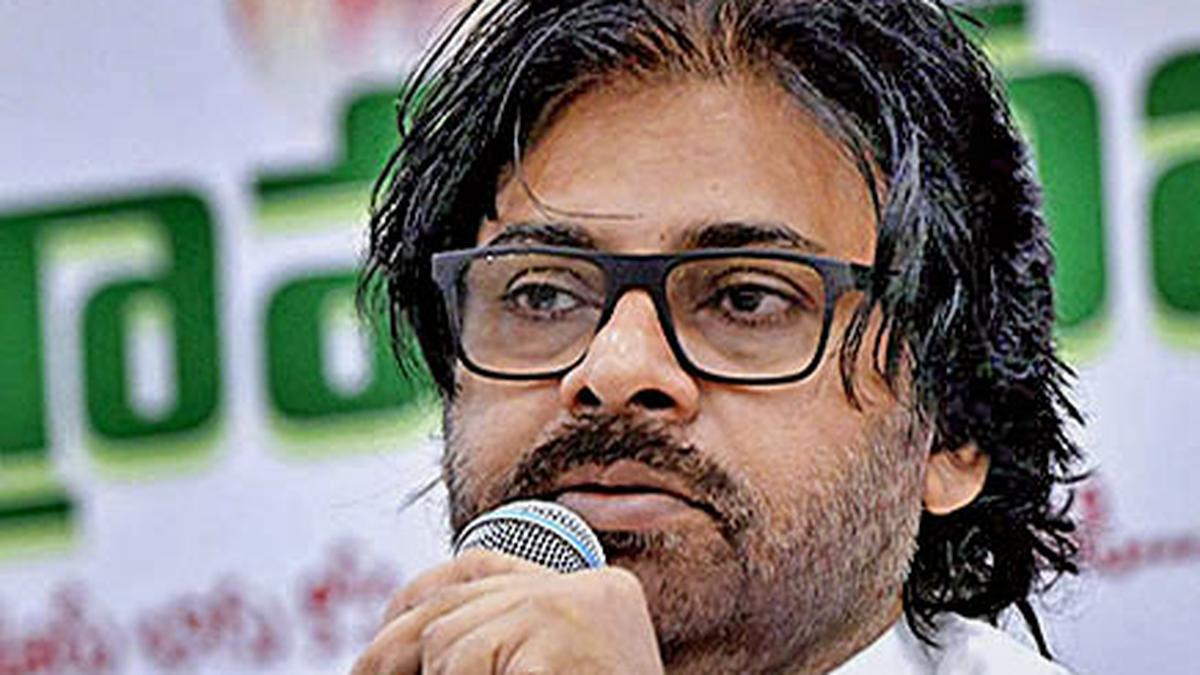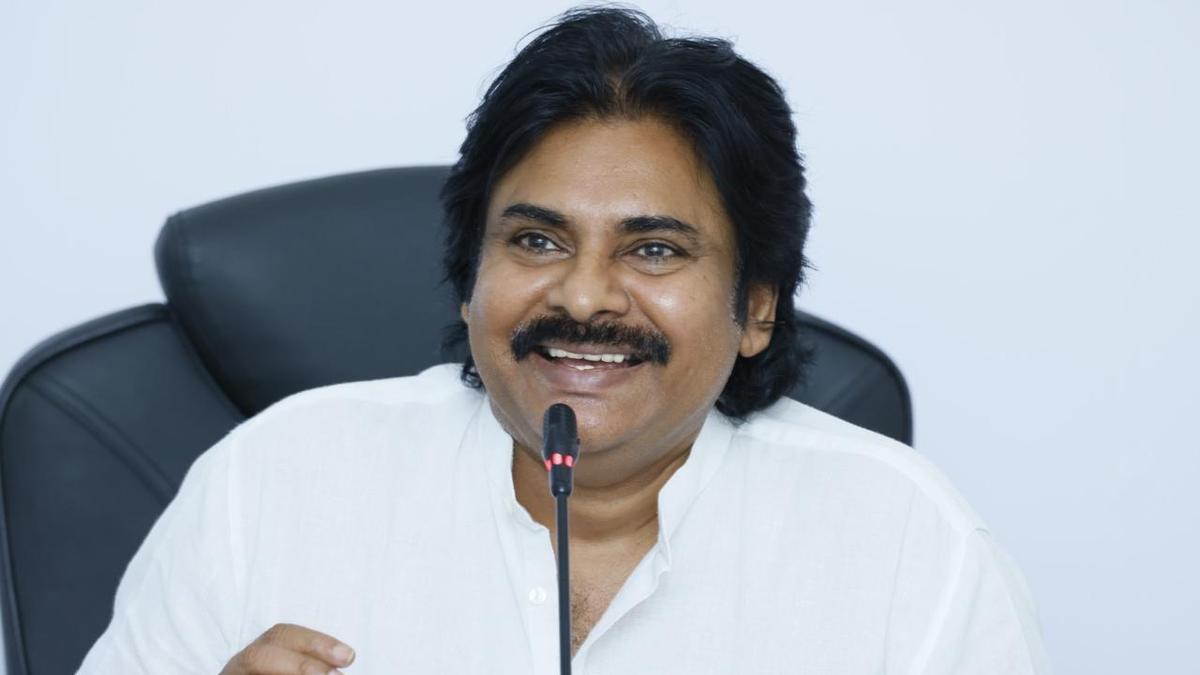The recent announcement regarding Andhra Pradesh Chief Minister Chandrababu Naidu's upcoming trip to the World Economic Forum in Davos has raised questions, particularly surrounding the notable absence of Deputy Chief Minister Pawan Kalyan. This trip, involving a nine-member delegation, promises engagements with top CEOs and discussions on potential investment opportunities for the state. However, Pawan Kalyan's exclusion from the group suggests a deeper political narrative than just logistics. As someone who has observed the unfolding political drama over the years, I can’t help but ponder the implications of this absence. Why is Pawan Kalyan choosing to sit this one out, and what does it mean for the ongoing political landscape in Andhra Pradesh?
The Dynamics of Political Representation
The upcoming World Economic Forum in Davos, Switzerland, is set to draw attention to Andhra Pradesh. A nine-member team, led by Chief Minister Chandrababu Naidu, will represent the state. This team is not just a collection of politicians; it's a carefully chosen group aimed at showcasing the state's potential. But who are these members, and what roles do they play? Let's break it down.
Understanding the Composition of the Davos Team
Chandrababu Naidu's team for Davos is diverse and strategically assembled. The members include:
- Chandrababu Naidu - The leader of the delegation and Chief Minister.
- Nara Lokesh - Minister and key figure in investment discussions.
- Karthikeya Mishra - CM Secretary, ensuring smooth operations.
- TG Bharat - Another minister focused on investment opportunities.
- Srinath Bandaru - CM Security Officer, safeguarding the team.
- Yuvraj - Principal Secretary of Finance, managing financial discussions.
- Sai Kant Verma - CEO of AP EDB, promoting economic development.
- Vikas Marmat - KADA PD, involved in project development.
This team is designed to impress potential investors and highlight Andhra Pradesh's resources. As they meet with CEOs of major companies, each member has a specific role. They will present investment opportunities and discuss the state's advantages.
Roles of Other Significant Members
Each member of the team brings unique expertise. For instance:
- Nara Lokesh is not just a minister but also a vital link between the government and the business world. His experience in technology and governance makes him an asset in discussions about innovation and investment.
- Karthikeya Mishra plays a crucial role behind the scenes. As the CM Secretary, he ensures that all logistics are in place. His organizational skills keep the team focused on their goals.
- Sai Kant Verma represents the Andhra Pradesh Economic Development Board. His insights into economic policies are vital for attracting investments.
These members are more than just faces in a crowd. They are the backbone of the delegation, working together to create a compelling case for Andhra Pradesh.
Implications of Not Including Pawan Kalyan
Interestingly, Deputy Chief Minister Pawan Kalyan is not part of this delegation. His absence raises questions. Why was he left out? Pawan Kalyan has not shown much interest in investment matters recently. This could be a factor in his exclusion.
His absence could have implications. For one, it may signal a lack of unity within the leadership. In politics, appearances matter. Not including a prominent figure like Pawan Kalyan could send mixed messages to both the public and potential investors.
Moreover, Pawan Kalyan’s involvement could have added another layer of credibility to the delegation. His popularity might have attracted more attention to the team's efforts. Now, the focus solely rests on Chandrababu Naidu and his chosen team.
Why Davos Matters
Davos is not just another conference. It’s a platform for attracting investments. The World Economic Forum gathers global leaders, making it an ideal place for discussions. Political representation is crucial here. The right team can open doors to significant opportunities.
In previous years, trips to Davos have yielded positive results for Andhra Pradesh. The government hopes to tap into big-ticket investments this time as well. The stakes are high, and the team must deliver.
As they prepare for this important trip, the dynamics of political representation will play a key role. The composition of the team, the roles of its members, and the implications of absent figures like Pawan Kalyan will shape the narrative. Can they effectively showcase Andhra Pradesh's potential? Only time will tell.
Why Pawan Kalyan’s Absence Matters
Pawan Kalyan's absence from significant economic discussions raises eyebrows. He has historically played a crucial role in these conversations. His participation is often seen as a symbol of leadership and commitment to economic growth. However, his recent silence speaks volumes.
Pawan Kalyan's Historical Role in Economic Discussions
In the past, Pawan Kalyan has been an active participant in economic forums. His insights have often helped shape policies and investment opportunities in Andhra Pradesh. His presence at these discussions is not just about attendance; it reflects his engagement with pressing economic issues.
- Pawan Kalyan has previously advocated for various economic reforms.
- He has been a voice for the youth and entrepreneurs in the state.
- His involvement has often attracted attention from investors and stakeholders.
But now, his absence from key events, like the World Economic Forum in Davos, raises questions. Why isn’t he there? Is it disinterest, or is there a deeper reason?
Perceptions of His Disinterest in Investment Topics
Many perceive Pawan Kalyan as uninterested in investment matters. This perception can be damaging. It suggests that he may not prioritize economic growth. This is concerning for a leader who has the potential to influence the state's economic landscape.
When leaders fail to show interest, it can lead to missed opportunities. Investors look for engaged leaders. They want to see commitment and enthusiasm for economic development. Pawan Kalyan's absence sends a message that he may not be that leader at this moment.
Possible Political Repercussions from His Absence in Leadership Scenes
Political repercussions from Pawan Kalyan's absence could be significant. His lack of presence in leadership scenes may affect his political standing. It raises questions about his alignment with the current administration's goals.
- His absence could weaken his party's influence in economic discussions.
- It may lead to a perception of detachment from important issues.
- His political rivals could capitalize on this to undermine his credibility.
As a political analyst once stated,
'Politics is not just about presence; it's about strategic positioning in times of opportunity.'This quote captures the essence of the situation. Pawan Kalyan's absence from pivotal discussions may lead to a strategic disadvantage for him and his party.
Conclusion: A Time for Reflection
In conclusion, Pawan Kalyan's absence from the Davos trip and other economic discussions is noteworthy. It raises important questions about his priorities and political strategy. His historical role in these discussions cannot be overlooked. Yet, his current silence may signal a shift in focus. Whether this shift is temporary or long-lasting remains to be seen.
Ultimately, the political landscape is evolving. Pawan Kalyan must decide how he wants to position himself in this changing environment. The stakes are high, and the choices he makes now could have lasting implications for his political future.
A Look Back at Previous Davos Successes
The World Economic Forum (WEF) in Davos, Switzerland, has long been a significant event for global leaders. It’s a place where ideas are exchanged and investments are sought. For Andhra Pradesh, this platform has been particularly crucial. Chief Minister Chandrababu Naidu's previous trips to Davos have yielded notable benefits for the state. However, the current government's approach to such international engagements seems to diverge from Naidu’s legacy.
Chandrababu Naidu's Successful Engagements
During his earlier regimes, Naidu made several trips to Davos. Each visit was strategically planned, aiming to attract investments to Andhra Pradesh. He met with CEOs of major companies, showcasing the state’s resources and opportunities. These efforts resulted in significant investments that contributed to the state's development.
- Investment Opportunities: Naidu's trips were not just for show. They led to real investments that transformed Andhra Pradesh.
- Global Networking: He built relationships with global leaders, which opened doors for future collaborations.
- Showcasing Potential: Each visit allowed him to present Andhra Pradesh as a prime location for business.
For instance, during one of his trips, Naidu was able to secure commitments from various industries. This not only boosted the economy but also created jobs for the locals. The results were tangible, and the people of Andhra Pradesh benefited from the investments that came in.
Current Government's Approach
In contrast, the current government, led by Y.S. Jagan Mohan Reddy, has taken a different stance. There seems to be a lack of emphasis on international platforms like Davos. The focus has shifted away from attracting foreign investments. This change raises questions about the future economic growth of the state.
Why is this shift occurring? One reason could be a change in priorities. The current administration may be focusing on local issues rather than global engagements. However, this could potentially hinder the state’s growth in the long run. After all, in today’s interconnected world, ignoring international opportunities can be detrimental.
The Historical Significance of the World Economic Forum
The WEF has always been more than just a conference. It holds historical significance for regional politics. For Andhra Pradesh, it has served as a platform to project its growth story. The forum has allowed leaders to discuss pressing issues and forge partnerships that transcend borders.
Naidu understood this well. He recognized that Davos was not merely a place for discussions but a venue for action. By participating actively in the forum, he positioned Andhra Pradesh on the global map. This was a strategic move that paid off.
On the other hand, the current government’s reluctance to engage in such platforms raises concerns. Will Andhra Pradesh miss out on vital investment opportunities? Only time will tell.
Conclusion
Chandrababu Naidu’s trips to Davos have left a legacy of successful investments and global partnerships for Andhra Pradesh. His approach was proactive, focusing on showcasing the state’s potential. In contrast, the current government appears to be stepping back from such international engagements. This shift could have lasting implications for the state’s economic growth.
As Andhra Pradesh navigates its future, the lessons from Naidu’s past successes should not be forgotten. Engaging with global leaders and showcasing the state’s potential is crucial. The world is watching, and Andhra Pradesh must not miss the opportunity to shine on the global stage.



